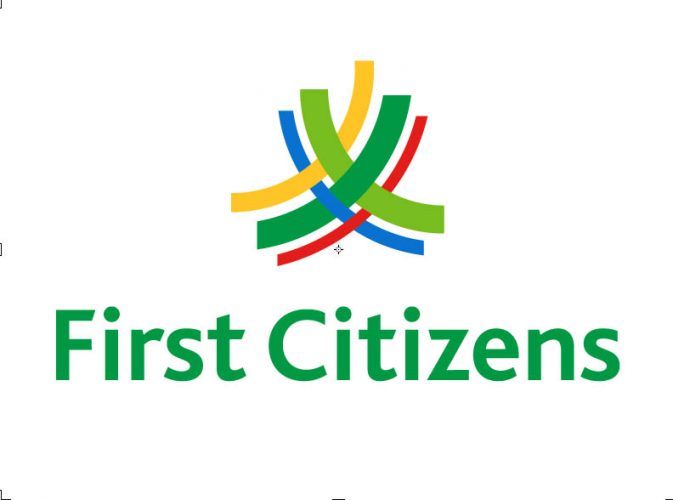The Bank of Guyana (BoG) is awaiting a formal application for a licence and other documentation from First Citizens Bank (FCB) Limited of Trinidad and Tobago with which Canada’s Scotiabank last month announced it had reached an agreement for the sale of its operations here.
“There was a meeting two weeks ago between Central Bank and FCB and they said then that they will send in their documents for us to undertake due diligence, analyze and process,” Central Bank Governor Dr Gobind Ganga told the Sunday Stabroek when contacted for an update.
“No, not just documents pertaining to the proposed acquisition but the paperwork needed for a banking licence,” he added.
 The Bank of Guyana Governor explain-ed that he could not go into detail about the ongoing discussions but when a decision was made it would be made public.
The Bank of Guyana Governor explain-ed that he could not go into detail about the ongoing discussions but when a decision was made it would be made public.
Int’l repute
And as the BoG awaits FCB’s information, local and foreign analysts weighed in not only on the deal and what it would mean for Guyana but whether it would be better if the country aggressively pursued a bank of international repute.
Guyana’s Minister with responsibility for Finance, Dr Ashni Singh has said that both Government and the Central Bank remain firmly committed to ensuring the maintenance of a stable, strong, vibrant, dynamic and growing financial sector especially during the current period as “it is important that the financial sector is adequately equipped to meet the needs of our evolving economy which as viewers would know is currently going through dramatic changes.”
Dr. Singh has said that Government’s primary objective remains the preservation of a strong and stable financial sector and one that is dynamic and competitive.
And as the Central Bank awaits documentation for processing by FCB before a decision, sources told the Stabroek News that at least two local institutions and a Jamaica-based bank had expressed interest in acquiring Scotia’s operations but concerns had been raised about their ability to bring correspondent banking relationships and an international network.
Moreover, questions have been raised about local banks’ ability to pay the over US$50 million that sources close to the transaction have said FCB offered, without significantly affecting their balance sheet or their ability to operate the “back-office” which was handled by experts at Scotia’s Canada head office. It is for this reason that it was suggested by experts that it might be more strategic for government to work on attracting an international bank to acquire Scotia’s banking operations.
One government source informed that this country has seen interest from a European bank and another headquartered in the United Arab Emirates. But the COVID-19 pandemic had seen communication with those institutions slowed down.
While major international banks can easily acquire Scotia’s business here if they wanted or even start up a new operation, banking experts have explained that they see a Guyana investment as a “highly risky” environment. And with recent major international drug busts linked to Guyana, many do not see the risk as a feasible venture. The de-risking movement over the last decade has seen an exodus of international banks from the Caribbean over fears that drug trafficking, money laundering and a host of other financial crimes could make them run afoul of regulators and tougher accountability legislation in their home jurisdictions.
Analysts say that it would be a financial blunder for any local bank to pay tens of millions of United States dollars to acquire any other bank’s operations here. One analyst, who did not want to be named, reasoned that it would be more prudent for a local bank to invest that money in upgrading its own operations to attract customers of other banks and an international clientele.
“To have that at your bank’s disposal means you can invest it in yourself to upgrade. For example, buying Scotia is just collecting their customers. You are not getting the Scotia or any of their operations because it is not a partnership. It would be better to lower your interest on lending and upgrade to meet the current banking demands,” the analyst said.
Foreign control
Some analysts have warned that a sale of Scotia to a foreign bank would mean that in excess of 50% of the banking sector here would be under foreign control and it was not a good sign for the future financial stability of this country. “For Guyana to truly benefit holistically where all of its economy is to benefit, then at least 60% of the banking sector should be locally controlled and 40% by foreign entities,” another advised.
Government was also advised to take caution with a bank that has another country’s government as part of its control. The government of Trinidad and Tobago has significant shares in FCB.
“The government should not allow the purchase of a local entity to a company that another government has control or significant control over as it opens the sector to political and country risk. That is unfair to the citizens. They should only be sold to private sector companies,” an analyst posited.
“In the region most countries have objected to the sale of these international instructions to foreign controlled entities as can be seen in Antigua, OECS, Barbados (sale of First Caribbean, CIBC).”
Foreign entities, a financial analyst reasoned, will have a conflict of interest operating here where they will favour their own and not facilitate the local businesses. With oil and gas expected to be Guyana’s largest revenue earner in the coming years, government has also expressed concerns over local content commitments by foreign companies.
Already, a large number of Trinidad and Tobago companies have established businesses here, with some offering services such as transportation, which Guyanese should easily qualify for. “FCB’s supply chain and vendor management will favour home country providers and may not support local content and providers,” the analyst said.
Repatriate
Noted too is that foreign entities would repatriate a significant amount of their income. One analyst estimated that on an annual basis, Scotiabank repatriated in excess of US$4 million to its parent company as management fees and expenses.
But a foreign analyst explained that foreign entities repatriating their incomes is nothing new as those company’s shareholders are not local and as such the bank would have to remit their dividends. “All foreign companies do. Do you think ExxonMobil spends the bulk of their income in Guyana? You remit where your shareholders are,” the analyst said.
In a case for locally-owned banks, one analyst posited that foreign-owned banks have had little exposure to key developmental sectors, such as agriculture here in Guyana. “A local buyer allows for a stronger local banking presence, the expanded bank will have the girth to lead government initiatives,” the analyst said.
Another would argue that for indigenous loans, such as in the agriculture sector, it would be more beneficial to all stakeholders if government created the environment for the establishment of a development bank or assist in backing the loans in the sector given by other banks.
“Agriculture is a risky area and we all would have seen what happened to GBTI. They are still reeling from unrepaid loans in this area,” the analyst said. “Government has to look at how they can create a development bank for persons who would not otherwise qualify for a loan or a system when it stands in for them. Banks will give loans if government takes the risk,” the economist said.
Noted, too, was that small and start-up businesses account for the large percentage of complaints about non-access to banking financing. However, the analyst was quick to point out that in Guyana it is because most of those businesses could not provide banks with the requisite documentation to carry out due diligence practices.
“Most of the small businesses do not have yearly audited financial statements. And what you find also, and some may be quick to dispute this, is that there seems to be a culture of cooking the books. If you look across the spectrum, show me 20 legitimate businesses that cannot get a loan. Businesses in Guyana just do not keep proper financial records. You must have audited financial statements,” the financial expert said.
Sources say that for the PPP/C government, the exit of a major international bank at this stage of the development of the oil and gas industry would be an adverse sign to investors about the climate here hence the need to convince Scotiabank to stay or to have a big name international bank enter the market.
Obligation
As it highlighted that the agreement was subject to regulatory approval and customary closing conditions, Scotiabank earlier this month announced that it had reached an agreement for the sale of its banking operations here to First Citizens Bank Limited of Trinidad and Tobago.
This newspaper understands that Scotiabank had a legal obligation as a publicly traded company to announce the pending sale agreement.
With the announcement appearing to have caught the government off guard, Dr Singh was swift to label the announcement as “premature and inappropriate”.
“It has been just been brought to my notice that a press release was issued … announcing a sale of the operations of Scotiabank Guyana to a Regional Bank -a Trinidadian Bank in particular. I wish to say that the Government of Guyana considers it extremely unfortunate that this transaction was announced – bearing in mind that any such transaction is subject to a specified regulatory process. In particular, Section 12 of the Financial Institutions Act stipulates that no financial institution may transfer a whole or a substantial part of its operations in Guyana without the prior approval of the Bank of Guyana,” the Minister said.
“Considering that the Laws of Guyana require this process, we consider it premature to announce a transaction of this nature”, Singh also noted. He added that it is the intention of the government and Guyana’s financial sector’s regulatory supervisor, the Bank of Guyana, to ensure that the Laws of Guyana are complied with in the fullest and to ensure that appropriate processes of due diligence required are initiated and concluded before any such transaction can be proceeded with.
The BoG would also warn that FCB did not have a licence to operate in this country, as it informed that the bank also had not submitted an application, in keeping with the requirements of the Financial Institutions Act 1995.




